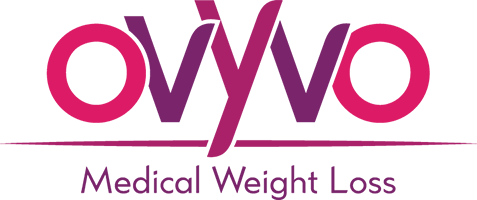Are you really getting enough protein to help you lose weight?
Protein is essential to your health. Your body utilizes protein to produce energy, repair and grow cells (like muscle), maintain a healthy immune system, regulate hormones (like insulin and glucagon), and more. When you’re either working toward losing weight or focused on maintaining your current weight, it’s important to make sure that you’re consuming enough protein. But how much protein should you include in your daily diet? And what are the best sources for it? Read on to find out!
The Right Amount of Protein for Weight Loss
The amount of protein you need is dependent on several factors, including your age, weight, activity level, overall health, and your goals.
The USDA has established a Recommended Daily Allowance for protein of 0.4 grams per pound of body weight. As an example, an individual weighing 250 lbs would require 100 grams per day (250 X 0.4). However, this number represents the minimum amount required for a healthy adult, and it may not be enough for some people. Highly active people and athletes may require up to 1.0 to 1.5 grams per pound. Meanwhile, individuals who are trying to lose weight may need to aim for 0.8 to 1.0 grams per pound of body weight. But there is a caveat…
It’s important to note that you can eat too much protein. But not so much because of the protein. Rather, when you eat more protein than you need, you’re also consuming more calories than you need. And you know what happens to excess calories that you’re not burning off.
It’s also worth mentioning that your body doesn’t really store protein. When it runs out, your body resorts to breaking down muscle to utilize as fuel. Eating protein throughout the day will help you maintain muscle and your energy level.
Calculate Your Protein Needs
For simplicity, we generally recommend eating 30 grams of protein three times per day. For a personalized number, multiply your weight (in pounds) by 0.4 to determine your minimum daily protein intake (in grams). (Example: 200 x 0.4 = 80)
How To Eat Protein to Maximize Weight Loss
Tip 1: Put Protein Before Carbs
Eating protein releases a hormone that tells your brain that your hunger is satisfied. You can use this to your advantage by eating the proteins (including vegetables) on your plate first. By doing this, you’re giving that signal a head start before you begin eating the carbohydrates on your plate. The idea here is that you’ll eat less overall because you’ll start feeling “full” before you get to or get through the carbs. This simple tactic of holding off on the carbohydrates has also been shown to result in lower blood sugar levels.
Tip 2: Remember The Dynamic Duo
Protein does an excellent job of curbing hunger. But you can keep that feeling of fullness even longer by adding fiber to the mix. (Click here to learn how fiber contributes to weight loss.)
The Richest Sources of Protein
Protein is found in both animal and plant-based foods. Animal-based protein provides all 9 essential amino acids in the right ratio. However, getting all the essential amino acids your body needs from plant-based protein can be tricky because most plants don’t contain all of them in the right proportion. So, for those of us on plant-based diets, it’s necessary to get protein from a variety of sources in order to get all the essential amino acids our bodies need.
You can easily add more protein to your diet by including the following foods in your meals and snacks…
- Almonds (1 ounce = 6 grams)
- Canned Fish (Salmon, Sardines, Herring, etc.) (3.5 ounces = 19 grams)
- Cheese (1 ounce = 7 grams of protein)
- Chia Seeds (1 ounce = 5 grams)
- Cooked Beans (1 cup = 15 grams)
- Cottage Cheese (1 cup = 23 grams)
- Edamame (1 cup = 19 grams)
- Eggs (1 large = 6 grams)
- Greek Yogurt (7 ounces = 17-20 grams)
- Green Peas (1 cup = 9 grams)
- Lentils (1 cup cooked = 18 grams)
- Milk (1 cup = 8 grams)
- Nutritional Yeast (1/2 ounce = 8 grams)
- Nuts (general) (1 ounce = 5-7 grams)
- Oatmeal (1 cup = 5 grams)
- Peanut Butter (2 tablespoons = 7 grams)
- Quinoa (1 cup cooked = 8 grams)
- Salmon (3 ounces = 17 grams)
- Shrimp (3 ounces = 20 grams)
- Sirloin Steak (6 ounces = 55 grams)
- Skinless Chicken (6 ounces = 56 grams)
- Soy Milk (1 cup = 6 grams)
- Spelt & Teff (1 cup = 10-11 grams)
- Spirulina (2 tablespoons = 14 grams)
- Tofu (1 cup = 20 grams)
- Tuna (3 ounces = 20 grams)
- Whey Protein Powder (1 scoop/28 grams = 17 grams)
- Whole Grains (1 cup = 6 grams)
- Wild Rice (1 cup cooked = 7 grams)
